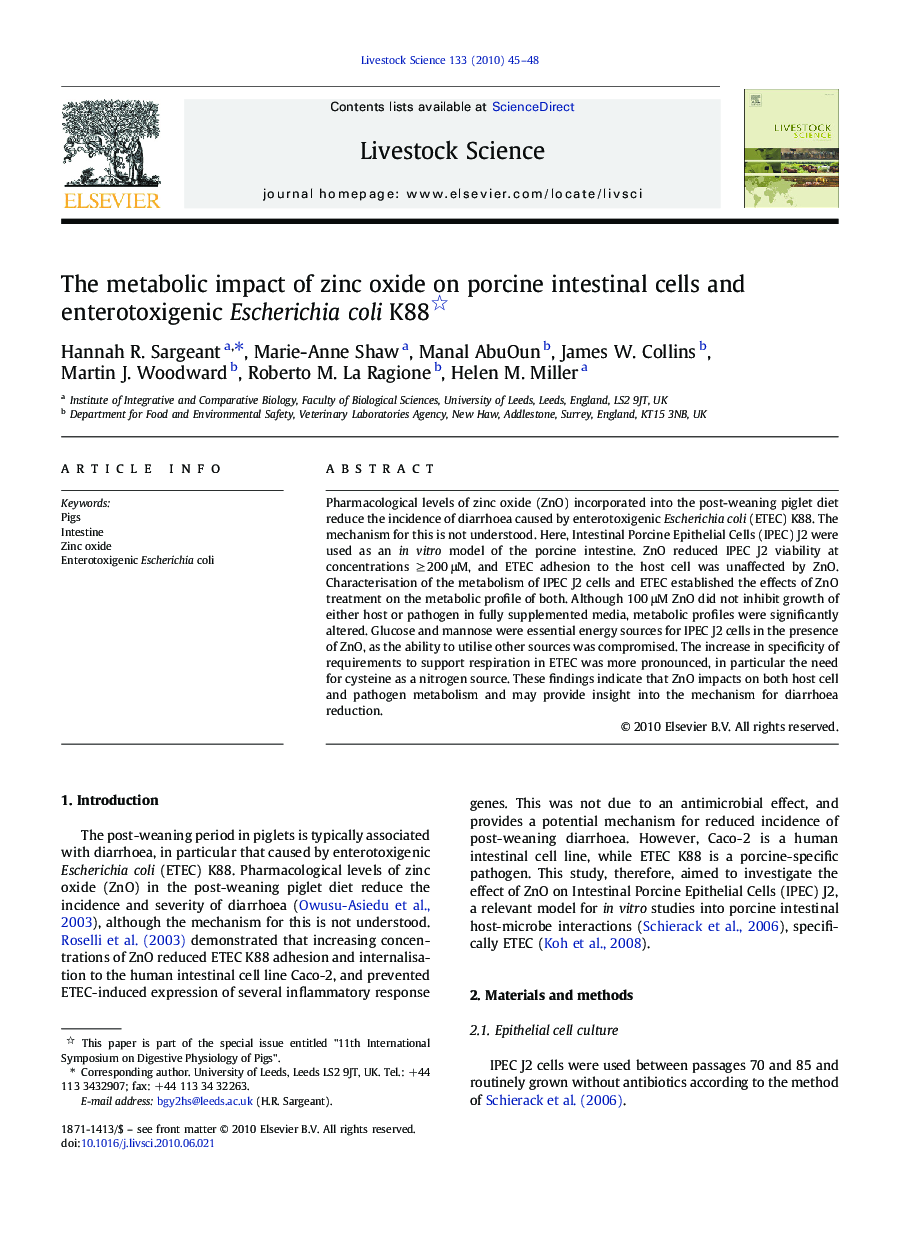| Article ID | Journal | Published Year | Pages | File Type |
|---|---|---|---|---|
| 2447684 | Livestock Science | 2010 | 4 Pages |
Pharmacological levels of zinc oxide (ZnO) incorporated into the post-weaning piglet diet reduce the incidence of diarrhoea caused by enterotoxigenic Escherichia coli (ETEC) K88. The mechanism for this is not understood. Here, Intestinal Porcine Epithelial Cells (IPEC) J2 were used as an in vitro model of the porcine intestine. ZnO reduced IPEC J2 viability at concentrations ≥ 200 μM, and ETEC adhesion to the host cell was unaffected by ZnO. Characterisation of the metabolism of IPEC J2 cells and ETEC established the effects of ZnO treatment on the metabolic profile of both. Although 100 μM ZnO did not inhibit growth of either host or pathogen in fully supplemented media, metabolic profiles were significantly altered. Glucose and mannose were essential energy sources for IPEC J2 cells in the presence of ZnO, as the ability to utilise other sources was compromised. The increase in specificity of requirements to support respiration in ETEC was more pronounced, in particular the need for cysteine as a nitrogen source. These findings indicate that ZnO impacts on both host cell and pathogen metabolism and may provide insight into the mechanism for diarrhoea reduction.
